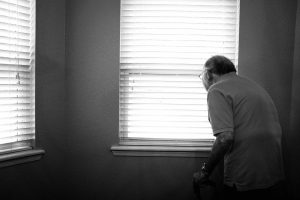 As many Oceanside residents with elderly loved ones know, nursing homes in Southern California and throughout the country have been cited for improper discharges of patients, amounting largely to evictions or the “dumping” of patients. According to a recent article in Skilled Nursing News, reports about such actions have “become a widespread issue—so much so that it is now one of the most frequent complaints made to states’ long-term care ombudsman programs” in California and across the U.S. When elderly patients are evicted from skilled nursing facilities, they can face nursing home abuse and neglect in the facilities where they end up living. At the same time, the mere act of “dumping” patients may in and of itself constitute nursing home abuse or neglect.
As many Oceanside residents with elderly loved ones know, nursing homes in Southern California and throughout the country have been cited for improper discharges of patients, amounting largely to evictions or the “dumping” of patients. According to a recent article in Skilled Nursing News, reports about such actions have “become a widespread issue—so much so that it is now one of the most frequent complaints made to states’ long-term care ombudsman programs” in California and across the U.S. When elderly patients are evicted from skilled nursing facilities, they can face nursing home abuse and neglect in the facilities where they end up living. At the same time, the mere act of “dumping” patients may in and of itself constitute nursing home abuse or neglect.
In response to these complaints, the Centers for Medicare and Medicaid Services (CMS) “has announced a new initiative aimed at blunting the growing trend of improper discharges at skilled nursing facilities.” Will federal efforts help to prevent the continued evictions of nursing home residents in San Diego County?
Many Patient Discharges Violate Federal Regulations
To be clear, many of the nursing home discharges we read about in the news that are framed as evictions already are unlawful. However, they continue to happen. While families may be able to seek a remedy by filing a lawsuit, both state and federal officials need to develop new methods to prevent facilities from violating the law.
According to David R. Wright, the director of the Survey and Certification group of CMS, it is important to be clear that many skilled nursing facility discharged “violate federal regulations,” and that they put seniors in both physical and psychological danger. The trauma of an improper eviction may also result in serious or life-threatening health problems for an older adult in the week and months that follow an eviction.
As Wright clarifies, “these discharges may result in residents being uprooted from familiar setting; termination of relationships with staff and other residents; and residents may even be relocated long distances away, resulting in fewer visits from family and friends and isolation of the resident.”
CMS Actions Designed to Prevent Unlawful Nursing Home Evictions
CMS recently released a memo to states detailing its plans to curb nursing home evictions, or “dumping,” across the country. There is not one single solution. As CMS explained to individual states in its memo, the agency is “considering a variety of solutions to the ongoing problem, including surveyor and provider training, intake and triage training, and civil money penalty-funded projects that may help prevent improper discharges.” In addition to larger scale federal initiatives, CMS is also encouraging states to submit proposals for funding to prevent unlawful evictions. Some of the possible actions that states could seek to fund include but are not limited to:
- Educational and outreach programs that help residents and family members to understand patient rights;
- Developing teams of healthcare professional that are trained in identifying patient risks;
- Training and educational programs for staff members to learn more about how to handle patients who may be targeted for eviction; and
- Forming support groups of staff members, healthcare providers, and family members to deal with issues such as resident placement when a patient suffers from dementia.
Seek Advice from an Oceanside Nursing Home Abuse Lawyer
Do you need advice about filing a claim after a wrongful nursing home eviction? An experienced Oceanside nursing home abuse lawyer can help. Contact the Walton Law Firm for more information.
See Related Blog Posts:
San Diego County Elder Abuse Efforts Highlighted
Are Carlsbad Nursing Homes Prepared for an Emergency?
(image courtesy of Alex Boyd)
 Southern California Nursing Home Abuse Lawyer Blog
Southern California Nursing Home Abuse Lawyer Blog








